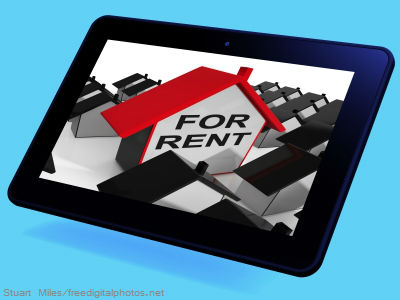|
Get Free Moving Quotes
|
|
How to Rent Out Your Home |
|
Rating : 0.0/5
130 Views
|
|
|
|
|
|
Sometimes circumstances c  an leave you the owner of a house that just sits unoccupied. If you become a landlord and rent out your home, you can have this property make money for you. But it isn't as simple as just getting tenants. Make sure you protect yourself and your property by remembering these tips for renting out your home. Make your home empty but functional
Before you can acquire tenants, you need to make room for them and their belongings.
- Clear out any unnecessary personal items in area that tenants will stay.
- Keep functional items like furniture and appliances in the living area. You can advertise that your home is furnished and ask for a higher rent.
- Don't leave any valuable personal items in your tenants' space.
- Clean the area thoroughly to make it attractive to prospective renters.
Come up with a reasonable rent charge
If you want to actually get tenants in your home, determine a fair rent charge given your location and your house's condition.
- Use your mortgage payment as a starting point and adjust based on what you find in the rental market.
- Look at local newspaper and online ads for similar rental properties in your area. You can get a good idea of what the market price for your rental space should be.
- If you are having trouble finding tenants, consider lowering the rent.
Find good tenants
The most important part of renting out your home is finding good tenants to live in your house. A good tenant will respect you and your property, and always pay on time.
- Advertise online, in newspapers, and through word of mouth.
- Ask for names, jobs, salaries, previous landlords, and other references on a tenant application.
- Ask for authorization to view their credit history.
- Do a background check to determine if they have criminal histories.
- Be wary of laws that vary by province forbidding you from denying housing based on information you find.
- Hire an agency to do the background check for you if you rather spend money than time. Just make sure the agency is legitimate by looking for BBB accreditation.
- Avoid falling for sob stories designed by possible tenants to make you skip the background or credit checks. Find the truth first, then use your own discretion.
Write up a lease
Make prospective tenants sign a written lease. You may need a lawyer on hand to make sure the contract is officially binding and that it complies with local provincial real estate laws. Leases should include:
- The term, or length, of the lease. You'll want to go month to month, if you're looking for flexibility. Year-long leases are better if you plan on holding onto the house for a while.
- The security deposit. This initial sum of money is meant to protect you from noncommittal tenants wasting your time. It usually is equivalent to at least one month's rent.
- The date the rent is due. Include detailed penalties for late payments.
- How repair and maintenance responsibilities will work.
- General rules. What is acceptable in terms of noise, guests, or activities?
- When and why eviction can happen. Just by spelling out that some offenses can lead to eviction, tenants should take you more seriously.
Insurance
Your normal homeowner's insurance will not suffice if you are renting out your home. To get coverage on rent-based losses and other hazards of being a landlord, you will need to get rental property insurance.
You should also ask your tenants to get tenant insurance. This means that if their property is damaged or lost in your house, they will be covered by the insurance company and not look to you to pay for their loss.
Consider hiring a management company
If you don't feel cut out for all this landlord business, but still want to get some income from unused property, consider hiring a property management company. For a fee, these companies will:
- Find tenants
- Set up their leases
- Collect rent
- Enforce late fees
- Provide maintenance and repair
- Handle evictions
- Deal with your tenants and manage your property on a day-to-day basis
On average, these companies charge 65 percent of a month's rent payment for finding and setting up tenants, and they charge an additional eight percent of the rent for their monthly management services. If you are busy or have moved far away, these companies are well worth the price, especially if you plan to rent out your home for an extended period of time.
|
|
 |
Author : Mike Sannitti
on November 19, 2014
TopMoving.ca - Moving Expert
|
| |